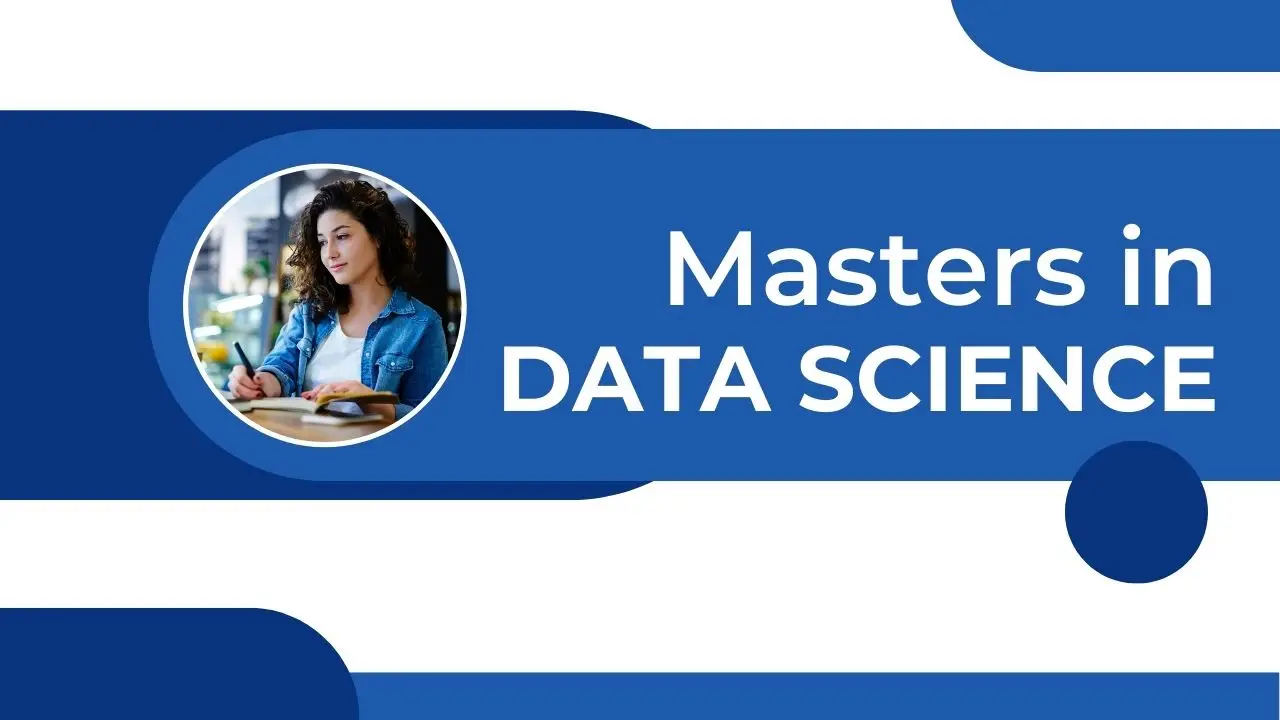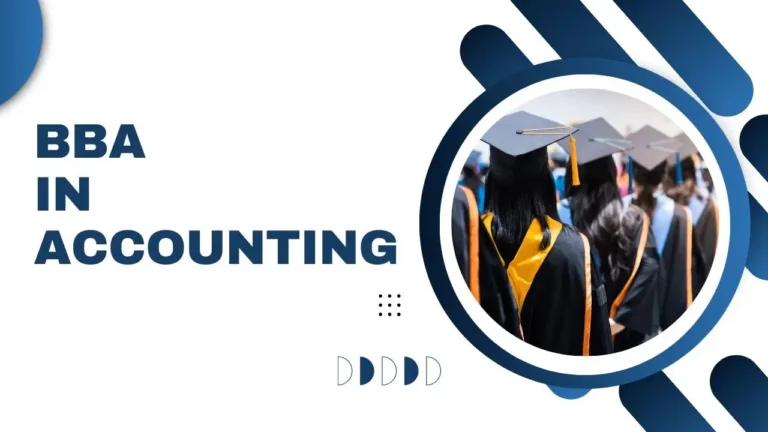Masters in Data Science: A Guide to Your Future in Data
Data is the new oil in the current digital era. To make wise judgments, every government agency, company, and organization depends on data. Because of this, there is a greater need than ever for qualified data scientists.
Getting a Masters in Data Science can be your key to success if you want to enter this fascinating and profitable industry. Everything you need to know about obtaining a Masters in Data Science is covered in this article, including what it is, why it’s worthwhile, what you can anticipate learning, employment options, and how to pick the best school.
Masters in Data Science Overview
| Type of Course | STEM-related course |
| Number of US Universities Offering MS in Data Science | 100+ |
| Duration | 1 to 2 years |
| Average Fee | USD 30,000 to USD 120,000 |
| Mode Offered in | Full-time or Online |
| Admission Requirements | GPA of 3.0 and above on a 4.0 point scale + TOEFL/IELTS + SOP + LOR + Transcripts |
| Average Annual Salary | USD 70,000 to USD 170,000 |
| Median Salary | USD 146,000 |
| Scholarships | Available |
What is Masters in Data Science?
Finding insights through data exploration and inference is the main goal of data science. To tackle complicated issues, a competent data scientist has to be proficient in both computer science and statistics.
Enrolling in a postgraduate data science course will help you develop a broad range of abilities that will allow you to support businesses with their business plans by utilizing the always-changing data science domains, including artificial intelligence, big data, machine learning, and more.
Why you should study this course?
In order to enable graduates from a variety of disciplines to enhance their current knowledge and abilities, this course has been created particularly to provide them with the chance to acquire experience from across the wide area of data science.
Working with other students who have various backgrounds and viewpoints, as well as having the chance to have extensive experience handling a range of data types to answer intriguing and varied issues, are some of the course’s features.
For students with no prior experience, the course seeks to build fundamental abilities in mathematics, data analysis, and computer programming. Together with practical experience using data science software tools in a variety of everyday applications, these abilities are built in context.
The knowledge and abilities you already possess from your undergraduate studies or professional experience, such as developing arguments, creating questions, writing reports, giving presentations, solving problems creatively, and having an interest in data, should be enhanced by the abilities you acquire upon completing this conversion course.
Careers and opportunities
- Exhibit methodical knowledge and critical comprehension of both fundamental and complex data science issues, as well as the theoretical underpinnings of these fields.
- Create and assess computer systems, especially distributed systems, that can store, organize, manage, retrieve, and analyze various kinds of data and dataset sizes.
- Utilize statistical reasoning, an analytical mindset, and a thorough comprehension of relevant models, techniques, algorithms, and software tools to analyze data of all kinds and pinpoint any analysis’s limits.
- Determine and implement suitable methods in a range of professional, legal, social, cultural, and ethical contexts, taking into account intricate, interconnected, and multifaceted concerns that arise in various organizations and professional settings.
- Exhibit employable practical skills and abilities, such as teamwork and constructive collaboration, team leadership, technical proficiency with contemporary data science tools and technologies, and the ability to inspire and accurately communicate complex ideas to both experts and non-experts.
Eligibility Criteria
| For National Students | B.Sc. IT/CS/Mathematics, BCA with minimum 50% marks |
| For International Students | For foreign candidates, all programs need a minimum score of 50% on the qualifying test and completion of the required coursework to be admitted to the program of choice. |
Salary of MS in Data Science Grads in USA
Graduates in data science are now needed in practically every sector, including IT firms, IT giants, and the fashion and e-commerce industries. The necessity to manage vast amounts of data, decode it, and use it wisely for the organization’s advantage has increased dramatically with the ongoing digitalization.
Graduates are prepared for key positions in fields including robots, the Internet of Things (IoT), health, and remote sensing data thanks to Big Data and Machine Learning. Graduates in analytics and data science can also find work at prestigious research development labs.
| Jobs after MS in Data Science in the US | Average Annual Salary |
| Data Scientist | USD 160,586 |
| Data Visualization Developer | USD 133,600 |
| Robotics Research Scientist | USD 156,000 |
| Machine Learning Engineer | USD 166,401 |
| Data Mining Engineer | USD 127,500 |
| Big Data Solutions Architect | USD 132,887 |
| AI Researcher | USD 113,102 |
| Business Intelligence Analyst | USD 91,318 |
Best Colleges for MS in Data Science in USA
| University | Course Offered |
| Carnegie Mellon University | MSc in Computational Data Science |
| University of California, Berkeley (UCB) | MS in Information & Data Science |
| Harvard University | MSc in Data Science, MSc in Health Data Science |
| University of Washington | MS in Data Science |
| Cornell University | MS in Data Science |
| New York University (NYU) | MS in Data Science |
| University of Pennsylvania | MSE in Data Science |
| Johns Hopkins University | MS in Data Science |
| University of California, San Diego | MS in Data Science |
| University of Maryland | MPS in Data Science & Analytics |
Conclusion
Earning a Masters in Data Science provides access to a lucrative and in-demand industry where data influences business decisions. Graduates are well-prepared for fascinating positions in technology, research, and business because of their extensive instruction in statistics, programming, and practical applications. This degree can be your ticket to success if you have a strong desire to transform data into meaningful insights.






